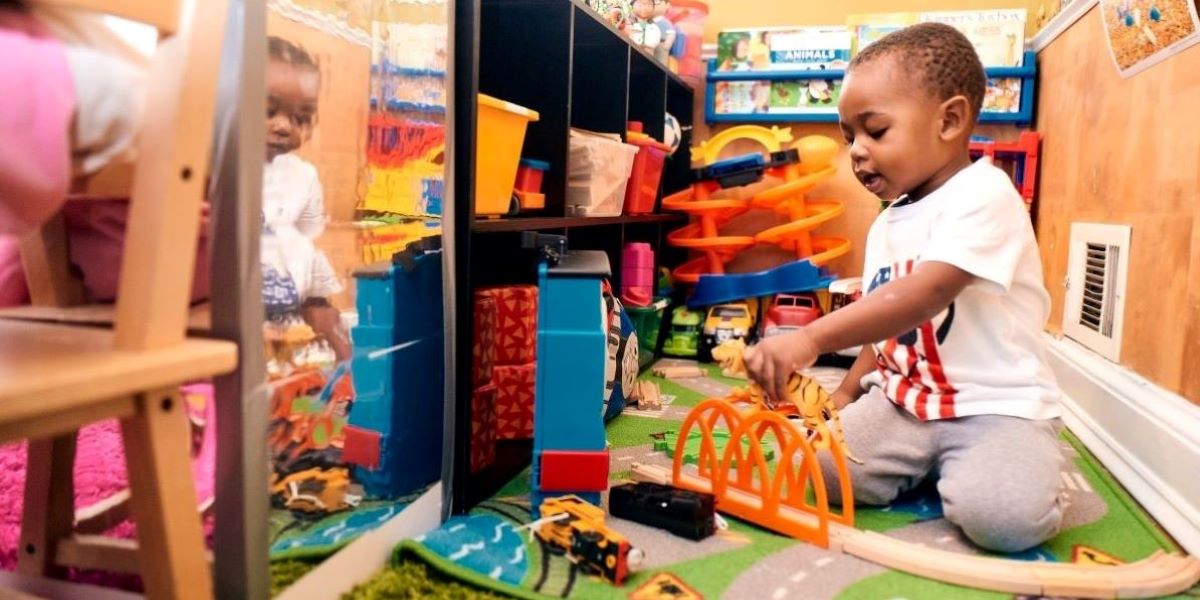The early childhood education sector directly impacts human development, the economic security of District families, the success of District businesses, and the overall strength and vitality of our city.
We know that many early education programs deeply appreciated the ease and stress-free application process for the business relief and stabilization grants run through the Deputy Mayor of Planning and Economic Development’s office and administered by the Low-Income Investment Fund. Unfortunately, the funding was insufficient to address the financial crisis caused by the pandemic.
We appreciate the funding that the Administration and Council have dedicated to stabilizing early childhood education in the midst of a global pandemic in fiscal years 2020 and 2021. Unfortunately, the emergency relief funding (less than $10 million across fiscal years 2020 and 2021) has simply not been enough. The COVID-19 pandemic, which has devastated the child care sector not only in the District but across the entire country, has exposed the quicksand our current early childhood system is built on and that more emergency funds are urgently needed for our child care businesses.
Further, to strengthen the stability of a sector that builds the brains of our youngest residents and allows working parents to work, we need to allocate $60 million to early childhood education in FY22. It’s important that these funds be recurring to build equity and respect into the pay we provide the early learning professionals who shape the city’s future by teaching and caring for our infants and toddlers.
We Must Fully Fund the Birth to Three DC Act
Countless studies have demonstrated that the first three years of life are when the most important brain development happens. This fact has been proven. It is not arguable. Why then do we as a society not prioritize support for the programs that we already know have a positive life-long impact on our youngest learners? Shouldn’t we do everything in our power to ensure that those we will soon look to lead us, receive the absolute best care and education possible, as early as possible? Given our need to justly and equitably recover our economy, shouldn’t we prioritize ensuring working parents can work?
The COVID-19 pandemic, which has devastated the child care sector not only in the District but across the entire country, has exposed the quicksand our current early childhood system is built on and that more emergency funds are urgently needed for our child care businesses.
The Birth to Three DC Act, which you passed in 2018, seeks to do just that. However, without the funding to implement every single element of the legislation, we are cheating our babies and toddlers out of the opportunities they deserve to grow and thrive.
Research shows that differences in brain development appear as early as nine months old. Much of the learning gap that exists before kindergarten persists throughout childhood. Economists tell us that investment in quality early programs for children at risk generate benefits that exceed their costs.
Even before the pandemic, demand for quality early childhood programs exceeded supply by up to 28,000 slots. And even when child care is available, it often is not accessible. The average cost of infant and toddler care is $2,020 a month, which is the most expensive child care in the United States, and far greater than what most DC families can afford. This is why the child care subsidy is so critical to supporting our children and families.
We Must Provide Robust Financial Resources for Child Care Businesses
While the District’s Child Care Relief Fund reached most licensed early learning programs, child care relief funding to date has not been sufficient to meet the needs of this essential sector. In a recent survey of DC child care programs, programs reported that cumulative relief funds to date – District dollars, PPP loans, and other federal or private sources of funding – covered only 35% of their costs, with many sharing concerns that their business may not remain viable for much longer without additional urgent aid.
In a recent survey of DC child care programs, programs reported that cumulative relief funds to date – District dollars, PPP loans, and other federal or private sources of funding – covered only 35% of their costs.
At the onset of the pandemic in March last year, our coalition members estimated the child care sector – those who participate in the subsidy program as well those who rely in whole or in part on private tuition – would need an additional $5.6 million per month, at a minimum, to weather the storm of closures, loss of tuition, lowered enrollment and attendance, new PPE costs, and altered staffing ratios. To date, the District has only met the equivalent of only two months of relief needs with emergency grants run through DMPED. A lack of further aid would greatly exacerbate the existing early education shortage crisis, making it impossible for many parents to return to work.
Every business sector in the District relies on child care, which is in itself a business sector. It is the work that makes all other work possible. Yet, our minimal investments in the sector means early learning programs are teetering on the brink of collapse. If we’re moving mountains to support hotels, restaurants, and retail, then we should be moving heaven and earth to save the child care businesses that make other jobs possible.
Both the national and DC chambers of commerce warn of continued economic stagnation if workers cannot return to work because of a lack of child care. DMPED, OSSE, the Administration, and the Council must all work together to find more ways to urgently support safe, stable, quality child care programs. Working families are also counting on the city to make sure our recovery builds back with a more equitable and affordable early childhood education system.
We Must Consistently Acknowledge that Early Childhood Educators ARE Educators
It is imperative that we affirm and lift up the truth that early childhood educators are educators. Early childhood educators play as important a role in the development of our children as PK-12 and post-secondary educators. Early childhood educators are the ones working with our children during the most critical time in human development.
Yet, these educators have historically been undervalued, underpaid, and underestimated. The vast majority of child care center owners and workers are women, primarily women of color. The average wage for DC early educators is $16.41/hour with minimal benefits, which is far below a livable wage. These low wages prevent educators from providing the reliable, quality care that will prepare children to succeed.
Yet, these educators have historically been undervalued, underpaid, and underestimated. The vast majority of child care center owners and workers are women, primarily women of color.
That early childhood educators were left off the District’s COVID-19 vaccine priority list exemplified the ways District leadership and education systems discriminate against early learning as second tier. It was a disappointing and disrespectful act. Not only are these early learning professionals equally important educators as PK-12 teachers and staff, but many early educators have consistently been working on the front lines throughout the pandemic. They have been working in person with children every day while public schools have been closed. Early educators have already had to risk their own health and well-being and that of their families in order to keep child care centers and homes open for working parents including essential workers.
Early childhood educators are our teachers during the most crucial three years of human learning. While we and our children may not remember the generous and caring individuals who were–in addition to parents–the first teachers, the human brain remembers. The very growth and development of our brains is entrusted to these individuals. It is incumbent on us to provide the resources, respect, and recognition that they deserve for the critical role they play in our early lives. That is why the Mayor and Council must advance the mission of the Birth-to-Three for All DC Law and raise pay of early educators to achieve parity with their peers in DC public schools. The Under 3 DC Coalition is asking for a recurring $60 million enhancement to the District’s child care subsidy program so that, in part, the path to pay parity can begin to be implemented in FY22.


